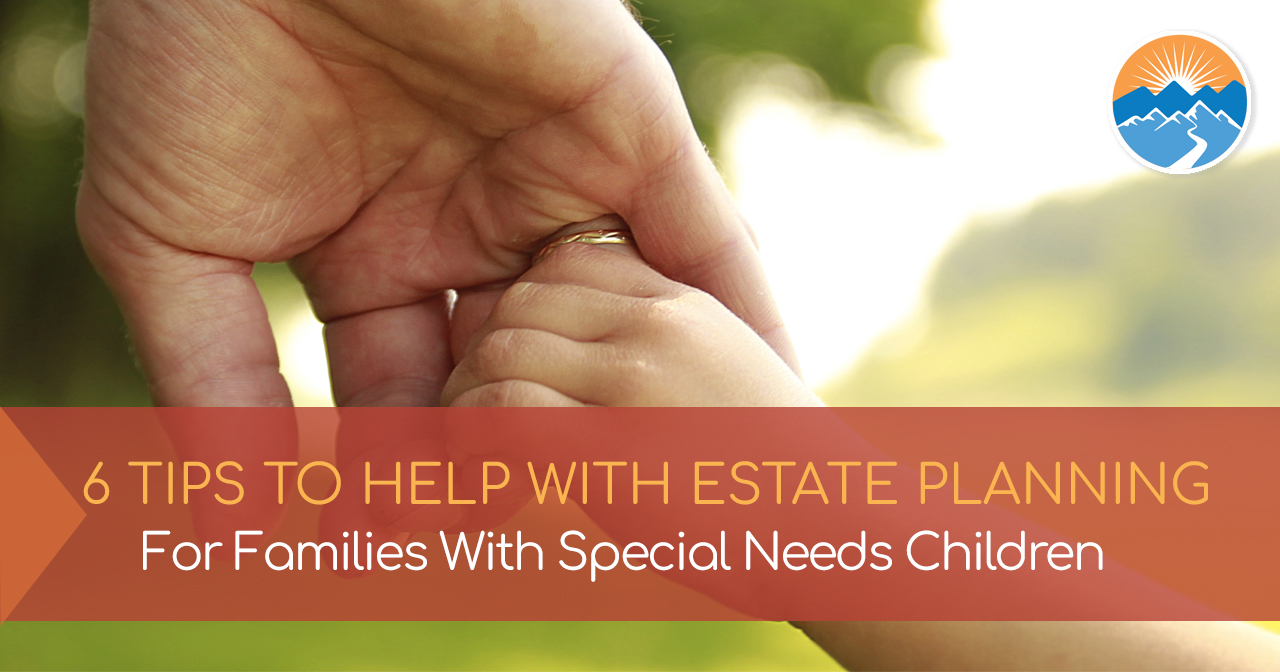6 Tips to Help with Estate Planning for Children with Special Needs
The day-to-day challenges around caring for a child with special needs can make it difficult to think ahead. However, planning for their future is critical to their success. Attorney Ellen Cookman is a Certified Specialist in Estate Planning, Trust, and Probate, with expertise in planning for children with special needs. If you or someone you know has a special needs child, Ellen offers these six top estate planning tips::
1.Special needs trusts cover more than those with a diagnosed disability
When you hear the term ‘special needs,’ developmental or physical disabilities and mental health challenges might come to mind. However, in terms of estate planning, the definition of special needs is broad and can cover anyone who needs extra help, with or without a diagnosed disability. Individuals unable to work and support themselves can qualify for certain needs-based public benefits. A special needs trust can protect those benefits, provide a financial safety net, and provide a management structure for those who struggle on their own.
2. Don’t wait until it’s too late
The only deadline in estate planning is when someone dies or becomes incapacitated. That’s why it’s critical to establish trust sooner rather than later. Worried you may need to make changes? Once you create a trust, it’s not written in stone – you can amend it as much as needed. But putting something down on paper now gives your child a safety net if the unexpected occurs. Flexibility can also be included in trusts to address changes in circumstances after parents are gone.
3. Labels can be a positive
It’s natural to be hesitant to label someone with a disability. However, identifying the disability can protect them should they need it. Plus it will help you better understand their needs as well as how to improve their situation. This is especially important when early intervention can make a difference.
4. Have the difficult conversations
There’s a cultural taboo around discussing death and disability. But avoiding them could put your child in a difficult situation. Some questions to consider include: What’s your child’s relationship with their siblings? Who do they get along with best? Have they ever lived on their own? Who will be there for them when you are not? It might be hard to imagine your child on their own without you, but that day will come. Making a plan now will help you enjoy the days ahead.
5. Wealth doesn’t exclude you from planning
Regardless of your family’s level of financial security, a special needs trust is still recommended. For example, in California, a trust is needed to qualify for Supplemental Security Income (SSI) and Medi-Cal, and both SSI and Medi-Cal are necessary for someone to be eligible for placement in a group home if that becomes necessary. For those unable to work, Medi-Cal gives access to health insurance they would not have otherwise. A special needs trust also provides structure without being restrictive, giving disabled persons the ability to access and use money, such as through a debit card, without distributing cash directly to them.
6. It takes a team
It’s important to know you don’t have to do this alone. Gather a brain trust that, at minimum, includes a financial advisor, a CPA, and an estate planning attorney. Working together, they can help ensure that nothing falls through the cracks with a disabled loved one both now and in the future.
With proper planning, your loved one will have better support options available to them now, and you can have peace of mind about their future. To get in touch with Ellen, use our contact link at the top of the page and we will be glad to connect you. At Gates Pass Advisors, we help you and your family prepare for – and stress less –
| Categories:




